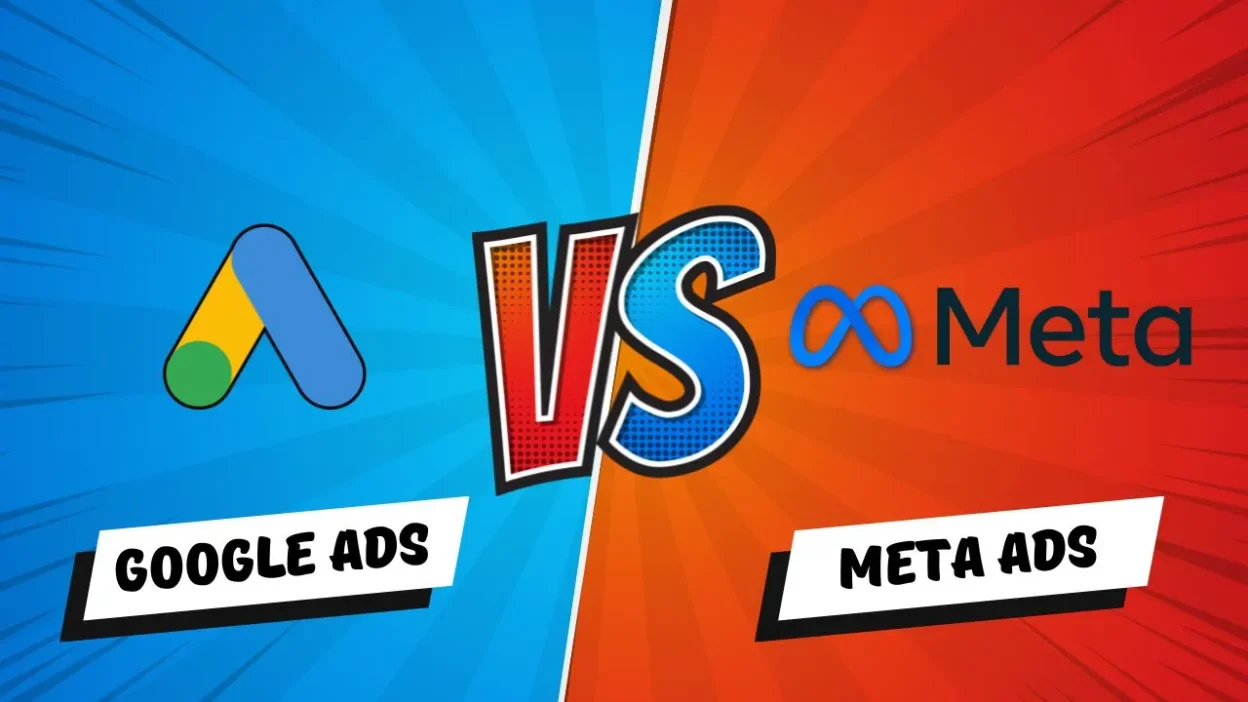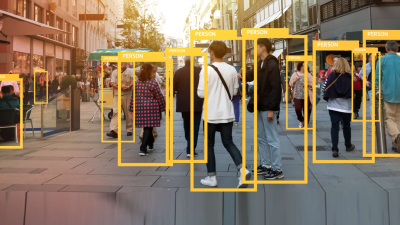Introduction
In 2025, digital advertising continues to evolve at lightning speed. With consumer behavior shifting toward mobile, video, and personalized experiences, businesses face a critical decision: Should you invest in Google Ads vs Meta Ads (Facebook & Instagram)?
Both platforms dominate the paid media landscape, but they serve different purposes, audiences, and campaign goals. This blog breaks down the strengths, weaknesses, and ROI potential of each platform to help you make smarter ad spend decisions.
Understanding the Platforms
🔍 Google Ads
Google Ads allows businesses to display ads across:
- Google Search
- YouTube
- Google Display Network (GDN)
- Gmail and Discover
It’s built around intent-based marketing, targeting users actively searching for products, services, or solutions.
📱 Meta Ads
Meta Ads include placements across:
- Messenger
- Audience Network
Meta focuses on interest-based targeting, using user behavior, demographics, and connections to deliver highly personalized ads.
Audience Targeting: Intent vs Interest
✅ Google Ads Strengths
- Targets users with high purchase intent
- Uses keywords, search queries, and in-market segments
- Ideal for lead generation, local services, and urgent needs
✅ Meta Ads Strengths
- Targets users based on interests, behaviors, and demographics
- Offers lookalike and custom audiences
- Ideal for brand awareness, retargeting, and eCommerce
Verdict: Use Google Ads for bottom-funnel conversions. Use Meta Ads for top/mid-funnel engagement.
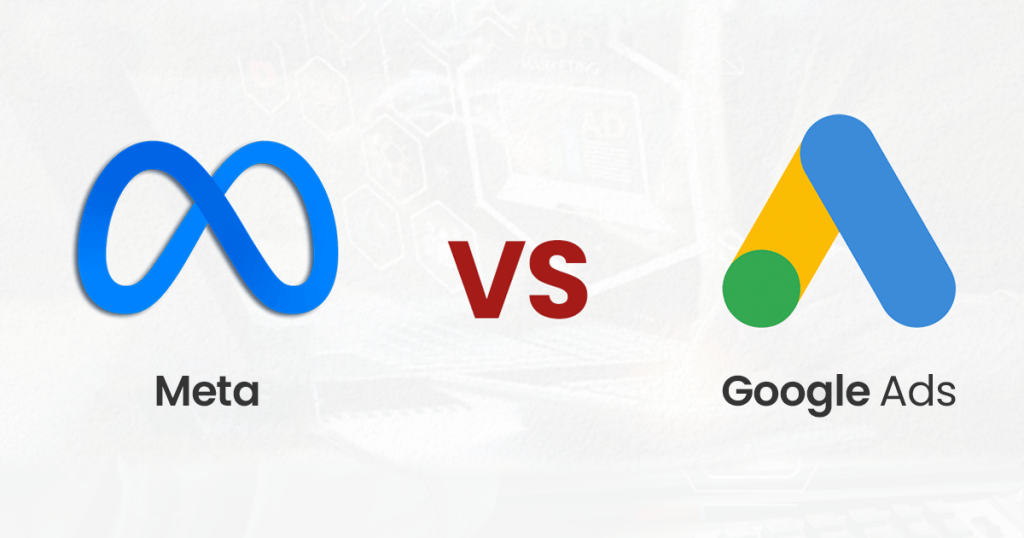
Ad Formats and Creative Flexibility | Google Ads vs Meta Ads
🎨 Google Ads Formats
- Text ads (Search)
- Display banners
- Shopping ads
- Video ads (YouTube)
- Responsive ads
🎨 Meta Ads Formats
- Image and carousel ads
- Reels and Stories
- Video ads
- Collection ads
- Lead forms
Verdict: Meta offers more visual and interactive formats, while Google excels in search and video placements.
Cost Comparison: CPC and CPM
| Metric | Google Ads | Meta Ads |
|---|---|---|
| Average CPC | Higher | Lower |
| Average CPM | Moderate | Lower |
| Conversion Rate | Higher (bottom-funnel) | Moderate (top-funnel) |
| ROAS Potential | High for search | High for retargeting |
Verdict: Meta Ads are more cost-effective for reach and engagement. Google Ads deliver higher ROI for direct conversions
Performance and ROI in 2025
📈 Google Ads ROI
- Strong for search-driven purchases
- High conversion rates for service-based businesses
- Excellent tracking via Google Analytics and GA4
📈 Meta Ads ROI
- Strong for eCommerce and brand building
- Effective retargeting and funnel nurturing
- Lower cost per acquisition (CPA) in many industries
Verdict: ROI depends on your goals. Google wins for immediate conversions, Meta wins for long-term engagement.
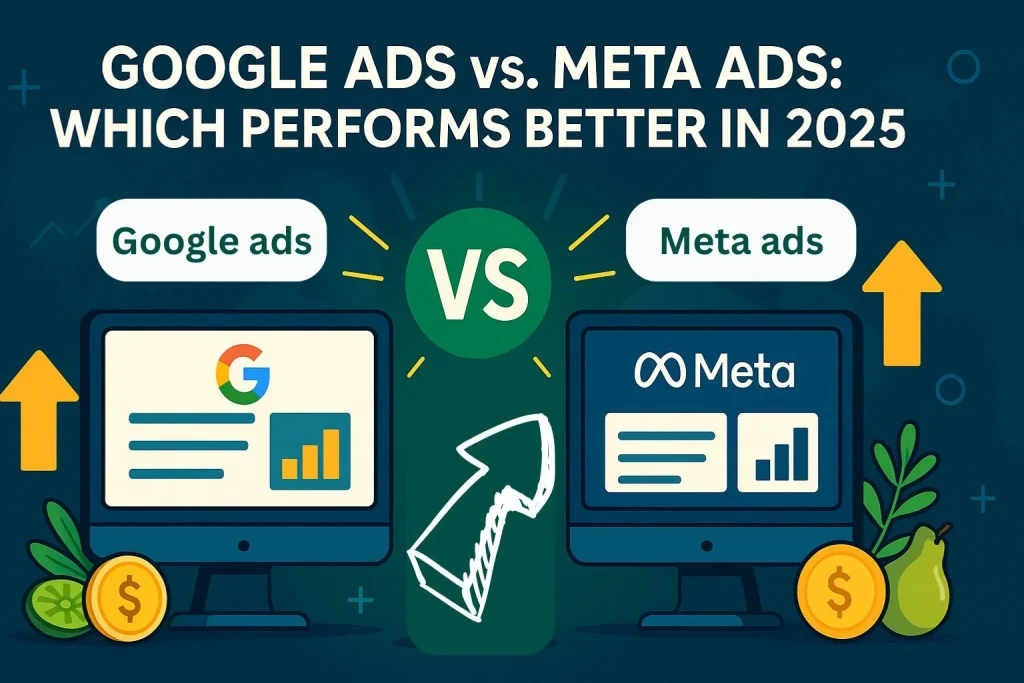
Use Cases: Which Platform Works Best?
🛍️ E-Commerce
- Meta Ads: Product discovery, retargeting, catalog ads
- Google Ads: Shopping ads, branded search
🏥 Local Services
- Google Ads: High-intent search queries (e.g., “dentist near me”)
- Meta Ads: Awareness and lead generation forms
🧠 B2B Marketing
- Google Ads: Search and display for lead capture
- Meta Ads: Thought leadership and remarketing
🎓 Education & Courses
- Meta Ads: Visual storytelling and engagement
- Google Ads: Search-based enrollment campaigns
Advanced Features in 2025
🤖 AI & Automation
- Google: Smart bidding, Performance Max, predictive analytics
- Meta: Advantage+ campaigns, automated placements, AI creative testing
📊 Analytics & Attribution
- Google: GA4, UTM tracking, conversion modeling
- Meta: Pixel tracking, offline conversions, multi-touch attribution
Verdict: Both platforms offer robust automation, but Google provides deeper analytics integration.
Challenges and Limitations
⚠️ Google Ads
- Higher competition and CPC
- Requires keyword strategy and ongoing optimization
⚠️ Meta Ads
- Ad fatigue and creative burnout
- Privacy changes (iOS updates) impact tracking
Blended Strategy: Why Not Both?
Many businesses find success by combining both platforms:
- Google captures active searchers
- Meta nurtures passive browsers and retargets visitors
Example Funnel:
- Awareness via Meta Ads (video, carousel)
- Retargeting via Meta (custom audiences)
- Conversion via Google Search Ads

Conclusion: Where Should You Invest in 2025?
There’s no one-size-fits-all answer. Your industry, goals, budget, and audience determine the best platform.
✅ Choose Google Ads if:
- You want high-intent traffic
- You offer local services or urgent solutions
- You need precise keyword targeting
✅ Choose Meta Ads if:
- You want to build brand awareness
- You sell visual or lifestyle products
- You need cost-effective reach and retargeting
🔄 Best Practice:
Use both platforms in a cohesive strategy to maximize reach, engagement, and conversions.

